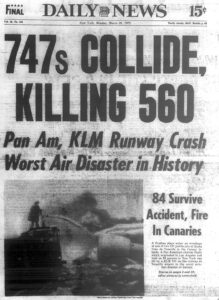Screenplays by Richard Willett
Producers, directors, ambitious actors, investors, and just plain curious readers can download copies of screenplays by Richard Willett at the ISA Insider web site (registration required) or by emailing Richard Willett directly richard@richardwillettwriter.com.
9/10

NICHOLL FELLOWSHIPS TOP 30 and AUSTIN SEMIFINALIST: “The moment before Armageddon looks just like this, that’s what the script is telling us. Life is normal right up until the moment that it’s not. It’s funny and romantic, and spooky, and sad, and filled with powerful emotion.” “A compelling tapestry of young love, disillusionment, and culture collision. One of the best ensemble pieces I’ve read this year.” “A clever, markedly different approach to the tragedy of 9/11. A potential awards season contender.”
Logline: Four interwoven stories that take place inside the World Trade Center on the night before September 11, 2001. Based on Richard Willett’s award-winning stage play.
9/10 tells four interwoven stories that take place in the World Trade Center on the night before September 11, 2001, but the setting is only gradually revealed to the audience.
Roberto is a young Dominican-American elevator maintenance man who is pestered by an older black security guard, Walter, for playing loud music while he works, until Roberto reveals he’s trying to mask the sound of a woman he insists he hears crying in the elevator shaft.
During a party at Windows on the World, Colin is on the verge of proposing to his girlfriend Allison, who beats him to the punch by announcing she doesn’t want to get married, and whose obsession with the Titanic presages her own fate and that of her family, who have been firefighters for generations.
Scott is an alienated thirty-something gay man who’s just heard that his father has died and who must share his office with Sahar, a young Moroccan Muslim woman temping graveyard and husband-hunting in her spare time.
Finally, Grace is a tall white actress and Roy is a shorter Asian actor running lines in an empty office for an ill-fated Equity showcase of BAREFOOT IN THE PARK, while teetering on the brink of career suicide—and an unlikely middle-aged romance.
In the course of 9/10, it is revealed in sometimes surprising ways that some of these people will likely be in the towers the following morning, but the movie is as much about the devastation of 9/11 as it is an elegy for the dream of New York City, and America, that came close to being lost that day.
And Call Me in the Morning: The Story of Thalidomide

Finalist for the SUNDANCE EPISODIC LAB and a second-rounder in the AUSTIN FILM FESTIVAL Screenplay Competition
Logline: In this limited series based on true events, six very different people around the world in the early 1960s – doctors, scientists, mothers, fathers — are confronted with the birth of deformed babies and struggle to find out why this has happened, eventually pitting them against the pharmaceutical giant whose prescription medication caused the epidemic.
Why are thousands of babies suddenly being born with flippers instead of arms and legs?
This urgent real-life question was being asked around the world in the early 1960s, first in Australia, where Dr. William McBride has to comfort one too many distraught parents and demands an explanation.
But how will anyone comfort parents or doctors when the answer turns out to be something so simple, a onetime decision made so idly, in the moment, with no thought as to the consequences?
McBride’s cloak-and-dagger pursuit exposes a chain of isolated but growing reports in many other countries—everywhere but the United States. And that’s where newly hired FDA scientist Frances Kelsey, under the gun as the first woman in her job, is crossing every t and dotting every i to hold up approval of a German-made sleeping pill called thalidomide, the wonder drug that’s sweeping Europe fueled by bogus claims generated from the drug manufacturer’s headquarters in Stolberg.
And as the clock ticks down, unknowing pregnant mother after pregnant mother takes the pill—including Ginny Robinson, wife of frustrated London Times reporter Paul Robinson; Evie Becker, wife of driven Mad Men–era advertising executive Walter Becker; overworked and underappreciated “Miss Sherri” Finkbine of Phoenix, Arizona, Romper Room fame; and repressed Belgian newlywed Suzanne Van de Put.
Until finally, after a massive worldwide effort spearheaded by Drs. McBride and Kelsey, Grünenthal relents and thalidomide is taken off the market.
But how then will each of these characters face the future?
Dr. McBride allows his hero status to go to his head in a deepening paranoia and suppression of the truth that his nurse was the one who first solved the mystery. Frances resists the fame thrust on her as she moves seemingly overnight from lowly FDA employee to feminist heroine.
“Miss Sherri” faces worldwide condemnation when she seeks an abortion for her “thalidomide baby,” while Suzanne is pressured by her family to kill hers in the cradle, because they see it as a sign of the devil.
Times reporter Paul fails to recognize the “big story” that’s landed on his doorstep—the disabled son he can’t accept—and Walter must face a wife who’s now carrying incontrovertible proof of his culpability in fueling the greatest pharmaceutical disaster of all time.
Until all these lives converge on a courtroom in Germany, to bring the drugmaker finally to task.
Designated Drinker
by Richard Willett and Linda Anderson

FROM THE BLACK LIST WEBSITE: “DESIGNATED DRINKER has some great character development both in the leads and in the supporting characters. There aren’t a lot of good roles out there for women in their fifties, but Annie isn’t just a mother or a wife–she actually gets to be a person. Brian, her gay best friend, is the comedic high point of the script. Overall, the concept reads like MEN OF A CERTAIN AGE meets HOW I MET YOUR MOTHER–people who are middle-aged or older and are still cool, and there definitely seems to be an audience for that.” “The authors have created possibly one of the most thought-out series bibles out there, a compelling and complex character drama that explores the lives of middle-aged adults.”
Logline: Annie, a tightly wrapped accountant with an empty nest and a husband losing interest, and her new best friend Brian, a gay N.Y. playwright forced back to L.A. to escort his wacko aging parents into oblivion, belly-up in a legendary Hollywood bar with a colorful assortment of drinking buddies coping with deferred dreams and absurd new midlife realities. Written by Linda Anderson and Richard Willett.
Midlife crisis?! How the heck did that happen? Must be something in the Irish coffee. In this hour-long romantic dramedy, Annie, a tightly wrapped accountant with an empty nest and a husband losing interest, and her new best friend Brian, a gay NYC playwright forced back to L.A. to escort his wacko aging parents into oblivion, belly up in a legendary Hollywood bar with a colorful assortment of drinking buddies coping with their own deferred dreams and absurd new midlife realities.
Sure, they might still look good, but everything’s crashing in on Annie and Brian, and filled with midlife’s niggling doubt, they commiserate nightly at Flanagan’s. There they’ll attempt to forge the second half of their lives, but how, and with whom?
Does Mike, the baffling, bedroom-eyed bar manager with a shady New York past, really love Annie or is he just another Angeleno slinging lines? Will her wayward husband Matt ever hit bottom, and will he take her down with him? Will Edward, the gay actor/bartender with a body built for shining armor, ever give up trying to win Brian’s affection? And will Brian ever escape back to New York City, away from his father’s demented love affair with Old Hollywood and his mother’s increasingly destructive alcoholism, and admit that was the fourth martini he just downed, not the third?
And what about the rest of the room? Can the homicide cops really solve a serial killer case on cocktail napkins, and will divorce attorney Diana and her Vietnamese marriage counselor boyfriend, Hung, ever crack the code of romantic bliss over nightly highballs?
And will they all ever stop drinking? Unlikely – the world of DESIGNATED DRINKER is one in which drinks may be counted and AA meetings occasionally attended, but for the most part everyone enjoys his or her cocktails . . . until the next hangover.
A teaser each week will introduce the theme and main action of the episode and will be followed by three acts that take place outside the bar. Acts IV and V are then set inside Flanagan’s, at the end of the day, “happy hour,” when the external dramas escalate and/or clarify but are not necessarily resolved, as the bar play is more chaotic, romantic, and heightened. “Last call” will be a scene to bookend the theme introduced in the teaser.
Tears, laughter, love, and booze take our characters full circle with coincidental and unexpected twists. Their goal becomes not perfection but wholeness, the biggest life that includes the most.
Drama Department

AUSTIN FILM FESTIVAL COVERAGE STATUS: RECOMMEND (rarely given). “The writer manages not only to get at the messy, complicated business of hormones and high school in a way that strikes the reader as fresh, but also gives the narrative a measure of timeliness with the #metoo angle. It really sneaks up on you how smart, precise, and effective this script is about the subject of teachers crossing the line with their students. There’s obviously an abuse of power taking place, but the raw power of DRAMA DEPARTMENT is how it shows the scenario is also more complicated than that.”
Logline: When a gay screenwriter who’s dismissive of the MeToo movement is subpoenaed to testify on behalf of a friend who’s suing their high school drama teacher over an affair he had with her when she was underage, he winds up taking over his teacher’s class and falling for a student himself.
Kevin Bartol’s take on #MeToo: “I know! I’ll blame all my problems on that guy who looked at me the wrong way at a party twenty years ago.”
You might think a married gay screenwriter would be more “woke,” but Kevin is a tough-talking, unemotional guy who writes only action movies and sometimes seems to push everyone away but his husband Charles – and even him sometimes.
When he’s subpoenaed to be a witness for his friend Jacqueline, who’s taking their high school drama teacher, Ned, to court over a relationship they had twenty years ago, Kevin is forced to return to his Washington State hometown, even though his sympathy with the issue is weak and his memories of that time are fractured.
Back home, he begins to bond again with Jacqueline and try to hear her side of things, but on a solo midnight visit to the school grounds, he has flashes of buried memory, of being bullied there, when he was obviously a very different, shyer teenager, more likely to be instantly labeled “gay,” memories that are interrupted by the sudden appearance of Ned, who asks him to be a character witness for him at the trial. Although he feels sympathy for his teacher, who was a positive influence in his young life and is now a town pariah, Kevin feels obligated to help Jacqueline, even though he still doesn’t really “get” how this affair constituted a crime against her.
Then he’s invited to speak to Ned’s senior acting class, and as he grows into the role over subsequent visits, he realizes he’s experiencing more job satisfaction than he’s felt in Hollywood in years. He’s particularly drawn to one student, Trevor, who reminds him of himself at that age. When Trevor makes the bold move of kissing Kevin on the lips, Kevin pushes him away, but finds himself privately in a tailspin of desire that leads him to tell Ned he will defend him in court.
But in the courtroom, the repetitive pounding of the judge’s gavel brings Kevin’s memories to full bloom, as he recalls being not just bullied, but viciously queer-bashed with a baseball bat at the age of 18. He breaks down on the stand, the first time he’s ever told anyone about the incident, including Charles, who has come up from L.A. because he’s worried about his husband. In the emotion of memory Kevin realizes how vulnerable he was at that age, how vulnerable Jacqueline was, and Trevor is, and to see that as the only adult in the room, it was Ned’s responsibility to take care of them, which he failed to do.
Now seeing the need for Jacqueline’s lawsuit, and others like it, Kevin switches sides back to supporting his friend and she wins in court. The two of them then join forces to investigate further what turns out to be Ned’s long history of committing such crimes.
In the aftermath of the trial, with Charles back in their hotel room, Kevin also comes to terms with his reluctance for years to look at his past, his fear that if he told his husband he’d been beaten up in high school Charles would think he was less of a man and wouldn’t love him anymore. Nothing could be further from the truth. With all he’s learned, Kevin also realizes that he doesn’t want to be a screenwriter anymore. He’d like to try to be a teacher.
The Flid Show

NICHOLL FELLOWSHIPS TOP 50: “Wow. I don’t know of any film, or script previously read, that THE FLID SHOW remotely resembles. Beyond the originality, this writer has fantastic craft skills. He creates an amazing character in the lead–interesting and dynamic and compelling, he grips the reader right from page one.” “This is one of those scripts that opens so powerfully that you forget, for the moment, that you’re reading a script. I was just ‘in.’ Instantly. The story does a fantastic job of communicating the horror and challenge of thalidomide’s effects. It humanizes the consequences without ever going for cheap sympathy.”
Mat Fraser, the breakout star of AMERICAN HORROR STORY: FREAK SHOW (Paul, the Illustrated Seal), is attached. Mat played this role on the stage and was himself born with flipper-like arms because his mother took the drug thalidomide.
Logline: A charismatic, belligerent English nightclub singer, born with flipper-like arms because his pregnant mother took the drug thalidomide, believes his deformity will keep him from ever finding love — until he falls for an American doctor with intimacy issues of her own, and must confront his own dark past in order to win her. A multiple award-winner in its own right, based on Richard Willett’s award-winning stage play.
Duncan Mowbray is an English nightclub singer born with flipper-like arms because his mother took the drug thalidomide. He lives with his sister, earning a paltry living with an act in which he sings only songs from 1962, the year of his troubled birth. Despite his obsession with the time period, Duncan wants nothing to do with anything that defines him as a “flid,” especially a group that’s pestering him to sing at a candlelight vigil to commemorate the drug, which caused an epidemic of malformed births around the world.
Then Duncan meets his sister’s young doctor friend Rachel Stohl, and they’re instantly attracted to each other but, for different reasons, pretend to dislike each other intensely. At the same time a series of spirits show up in Duncan’s life with the apparent purpose of touring him through the dramatic high points of what was the greatest pharmaceutical disaster of all time, but with the ulterior motive of guiding Duncan into a more honest relationship with his dark past (including the suicide of his mother), which allows him to open up to Rachel in a way he never has with a woman before. But when Duncan learns that Rachel has prescribed the newly redeemed thalidomide to a patient and that she plans to speak at the upcoming vigil herself, he leaves her, and Rachel’s own insecurities drive her into the arms of an able-bodied lover. Neither finds happiness apart, however, and when Duncan shows up at the commemorative ceremony after all, he and Rachel recognize their lasting bond with each other, and side by side with her, Duncan expresses his newfound tolerance of life’s essential imperfection with a final, and surprising, song.
He’s Here Somewhere
Logline: A young single woman is told by a psychic that she’s already met the love of her life, but the psychic can’t tell her which guy he is.
A psychic tells 32-year-old New Yorker Erin McLeod that she’s already met the love of her life. The bad news? The psychic can’t tell her which guy he is.
Joining forces with her plus-size BFF from weight-loss class, Samantha, newly svelte Erin sets out to find this guy by the time of her younger sister’s wedding, but instead finds herself plunged into a funhouse world where it seems almost any guy might be her soul mate.
And meanwhile sister Hallie’s Bridezilla wedding plans run amok in Connecticut, where Erin must deal with the family she never fit into and her arch-nemesis Nick, the gardener’s son who used to tease her about her weight when they were kids.
Then her struggling psychic refines the guidelines: She now sees a polka-dot pattern of some kind, but she’s not sure exactly what it is, and the quest through several close calls — a secretly married man, a guy who’s good for great sex only, a fellow who preferred Erin before she lost weight and ends up with Samantha — takes on an odd wardrobe twist.
Defeated and weary, Erin finally gives up on the quest for a guy . . . and in solitude rediscovers the candle she snuffed out the longest time ago: her own.
Until the eve of her sister’s wedding, when a further, final update from her exhausted psychic reveals the surprising true love who’s been hiding in plain sight the whole time: Nick, the reformed bully who was the first to wound her self-esteem in childhood.
In a Midnight Garden
From recent SLAMDANCE coverage: “The relationship arc is excellent. The fact that these two fall in love and we go along with it is a testament to the writer because it takes a lot of work to justify that. And it works.” From THE BLACK LIST: “A gripping, serious drama, with two strong, multifaceted characters driving the story and each other. The script does not sugarcoat the raw, grim realities of the subject matter, but rather tackles them straight-on.”
Logline: A broken woman who joins MADD to strike out at the alcoholic responsible for the death of her son becomes alarmed and confused when he begins moving toward her out of his own needs. Their strange dance creates unexpected and sometimes darkly comic twists and leads both to a new place in their lives.
Martha Gillespie has fought to have it all: a beautiful home, a successful husband, and a picture-perfect little boy. But it’s all shattered when a drunk driver kills her son in a horrific accident. Martha finds herself facing a broken marriage, a house and garden falling to ruin, and an aching loneliness she can fill only with memories of her poor background, raised in a trailer park by an alcoholic brother she hasn’t spoken to in years. Then Martha finds MADD, and she begins to organize her feelings around anger and a desire for vengeance. But a monkey wrench is thrown into this resolution when the driver responsible for her son’s death, Harry Dolan, is released from prison and begins to pursue her. Harry is a landscape equipment salesman with more of a feel for plants than people, but he begins to visit Martha’s tangled garden in the middle of the night and to transform it into something beautiful. Harry wants forgiveness, but then also something more. He and Martha begin slowly to realize that they are the only two people on earth who can fully understand the impact of what they went through together. Martha resists Harry’s overtures, but when he finishes in her garden and does not return, she discovers that she misses him, and against the judgment of her colleagues at MADD and her own inner logic, she decides to reach out to him.
My Brother’s Killer

NICHOLL Top 20 percent, AUSTIN SECOND-ROUNDER, BLUECAT SEMIFINALIST: “A taut and frightening psychological thriller with disturbing content and memorable characters.” “Definitely in the vein of SILENCE OF THE LAMBS and SE7EN. The final twist is very clever and pays off in a way that makes you want to go back to the beginning and see if it was set up (it was).” “In obsession, love, and catharsis, Gordon is a compelling and sympathetic protagonist. An effective and disturbing psychological thriller by any standard, MY BROTHER’S KILLER makes a strong impression for the personal human interest and family elements it brings to the table.”
Logline: A criminal law student is assisting his profiler professor in a study of serial killers when a local murder spree ramps up and threatens to unearth long-buried memories of his late brother, who was himself a notorious killer.
There’s an eagle tattooed on Gordon Taymor’s right bicep and a butterfly on his left.
In school to become a prosecutor, he gets swept up in the investigation of a wave of grisly local murders and joins his professor Bennett Toliver in a prison study of killers in which they try to emotionally “break” the subjects by confronting them with chilling images of their victims’ fates. But at the same time Gordon’s heart is hamstrung by buried memories of his own serial killer brother, and he’s falling in love with his study-mate, liberal fellow student Emily Pearce.
This pressure cooker explodes when one of the killers steals a gun and takes Emily hostage.
To save her Gordon distracts her abductor with a game of one-upmanship using the encyclopedic knowledge of serial killer trivia he shares with the prisoner—which ends up forcing Gordon to confess his own family story and builds to a startling emotional connection between the law-and-order wannabe and a “broken” killer.
Ending that crisis is only the beginning of Gordon’s involvement, though, as he then gets more personally invested in tracking and uncovering the real-time local killer—at the risk of losing his life, his sanity, and the girl he loves.
The Not Ready for Prime Time Family

THE NOT READY FOR PRIME TIME FAMILY came within a handful of scripts of being in the Top 20 Percent of the NICHOLL FELLOWSHIPS competition, second-rounded in AUSTIN, and was a semifinalist for the STAGE 32 COMEDY CONTEST. As well, it was a quarter-finalist for the BLUECAT SCREENPLAY COMPETITION and the SCREENCRAFT COMEDY SCREENPLAY COMPETITION.
Logline: Among other myths, homophobic right-wingers say gay parents will inevitably turn their kids gay, right? Well, Bert and Martin are about to go on statewide TV to prove them wrong. The only problem: They’re beginning to suspect all four of their kids are gay.
Conservatives say gay parents will inevitably turn their kids gay, right? Well, Bert and Martin are about to prove them wrong on a TV special saluting the all-American Midwestern gay-parented family in the age of Mayor Pete. The only problem: All four of their kids appear to be gay.
Bert’s long-suppressed dreams of TV fame are on the verge of coming true, and he’s genuinely worried about how his family will impact the future of marriage equality, and even beginning to fear that he and Martin somehow did do something wrong.
The solution? He will single-handedly whip these kids into shape by unlocking whatever inner heterosexual he can find in them!
Things go from bad to worse as Bert forces the youngest boy to attend a football game, escorts the oldest boy to a straight strip bar, and purchases a mountain of chick lit for his teenage daughter.
Except then Martin, a down-to-earth construction foreman who flunked Gay 101, and the kids, begin to fight back. When the TV folks show up in middle America a day early for a pre-interview, the family meltdown plays out like the dinner scene in THE BIRDCAGE.
And when they go ahead with the final shoot anyway, the kids, who as it turns out are not actually all gay, decide to give Bert what he claims to want and act so “normal” it’s nauseating, and Martin confesses that the last few weeks, which have forced him out of the closet, have been some of the best of his life.
Bert caves and realizes that family and personal freedom are way more important than showbiz. But when the TV people go ahead and air the segment, it goes viral, with people across the country identifying with this LITTLE MISS SUNSHINE-style family: “They’re just like us. They’re all crazy, but they love each other, and that’s what matters.”
So by being politically incorrect, they actually end up advancing the movement. And Bert gets to be a star after all.
Which Way the Wind
“WHICH WAY THE WIND is an exciting, dramatic Western that makes a fine addition to the genre. A strong screenplay that demonstrates solid writing and great storytelling instinct. When the work is submitted to a production company, agency, or studio, it will more than likely earn a stamp of approval and work its way up the food chain.” – SCRIPTAPALOOZA
Four-time AUSTIN FILM FESTIVAL second-rounder: “From beginning to end, this is compelling storytelling. The lonely widow must choose one of three brothers for a husband, but her son’s need for a father is the beating heart of the story, and it resolves beautifully for both. The script has profound emotional depth, as the plot points turn on the conflicts of prejudice rooted in race, sex, power, and addiction/mental illness.”
Logline: A young widow in 1860s Colorado looking for a husband for herself and a new father for her traumatized son is presented with a choice when three very different brothers come to town to help out in the case of a local girl abducted by Indians and each pursues the young widow in his own way.
In Which Way the Wind, a young widow in 1860s Colorado looking for a husband for herself and a new father for her traumatized son is presented with a choice when three very different brothers come to town to help out in the case of a local girl abducted by Indians and each pursues the young widow in his own way: bookish Ethan, who can talk to the Indians; handsome gunslick Darcy, who wants to fight them; and Noah, the eldest, who’s been scarred but is finally seasoned and matured by his tragic experience in the Civil War. There’s plenty of action in Which Way the Wind, but the romantic depiction of a young pioneer woman’s loneliness and sexual hunger makes it a Western with a difference — it’s one that can also appeal to a wider audience.
Join Richard’s Newsletter Mailing List
CLICK HERE to get the latest news about upcoming Richard Willett publications and productions, tour events, and other facts and tidbits. We never share your information with others, and it’s easy to unsubscribe.